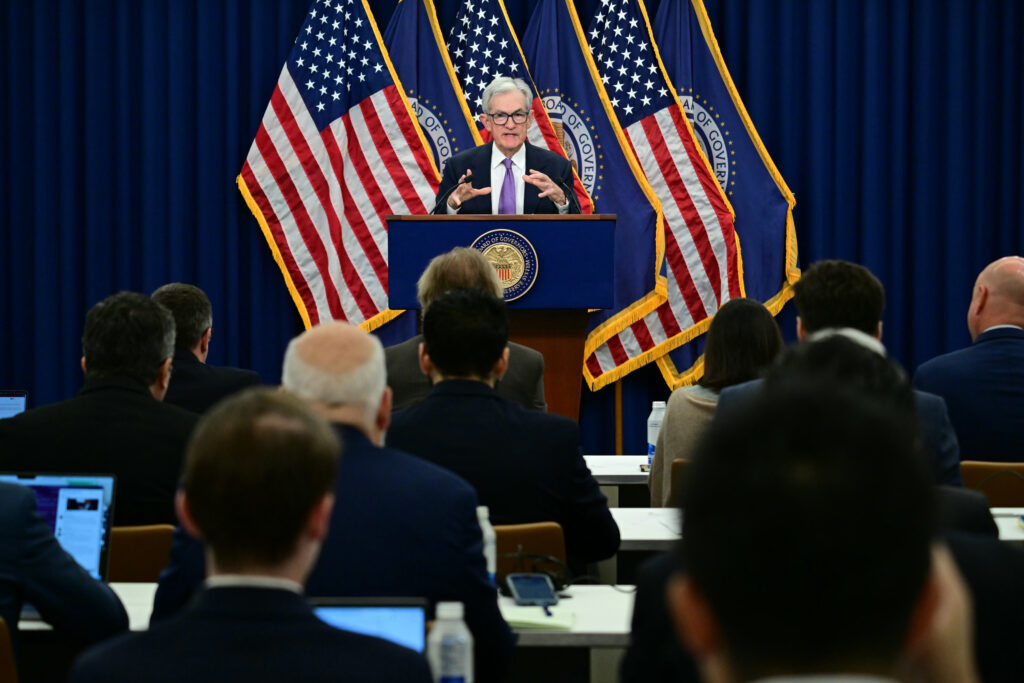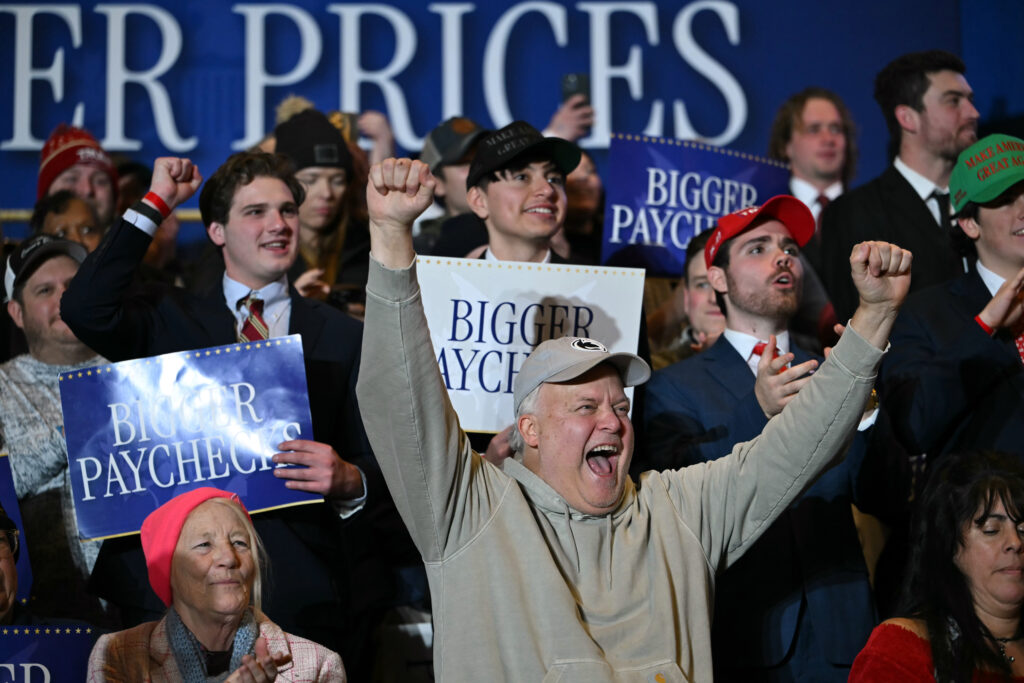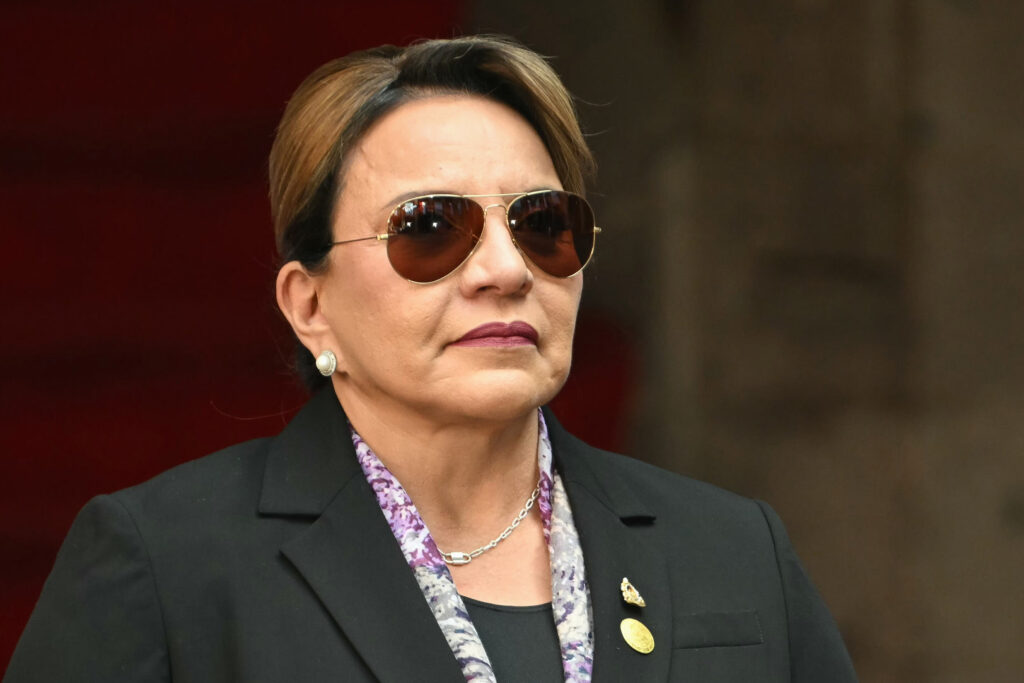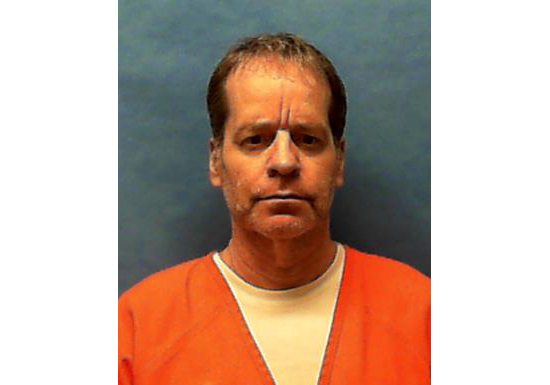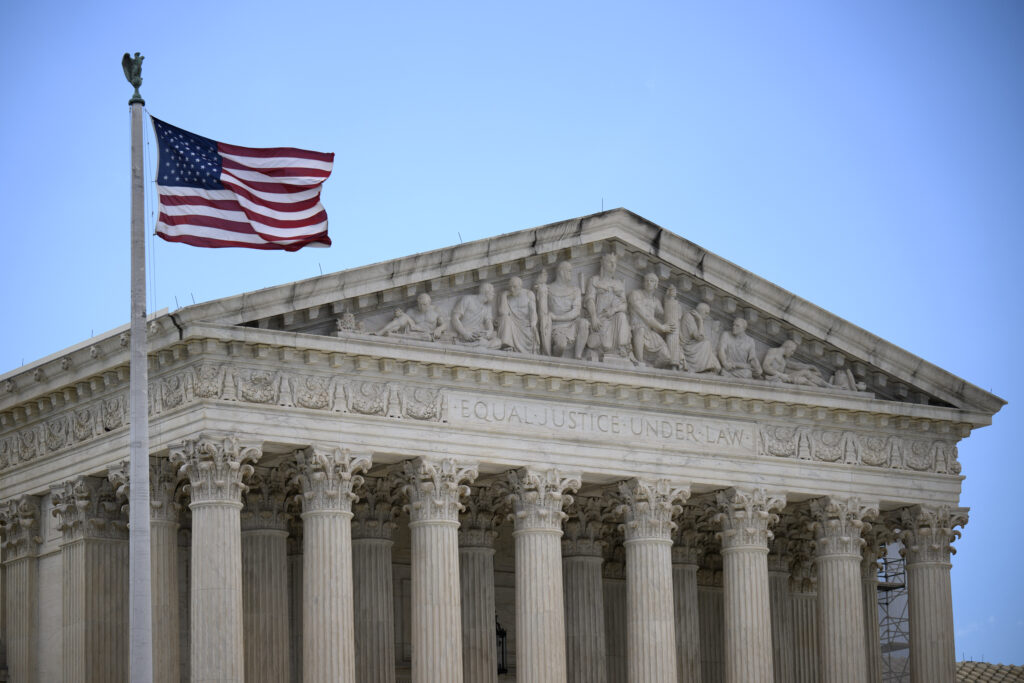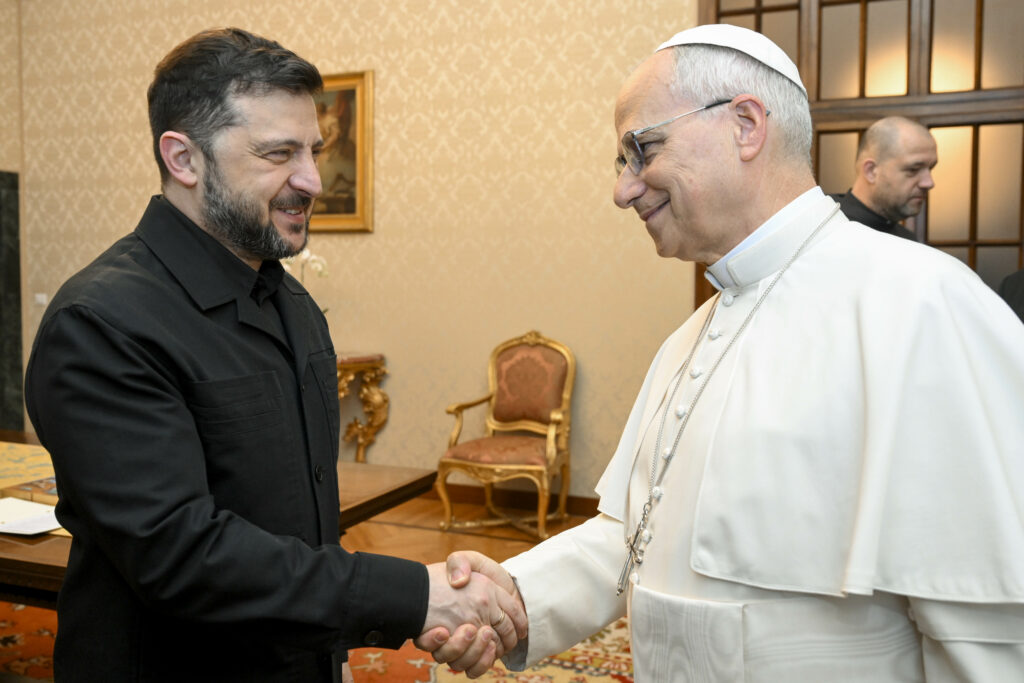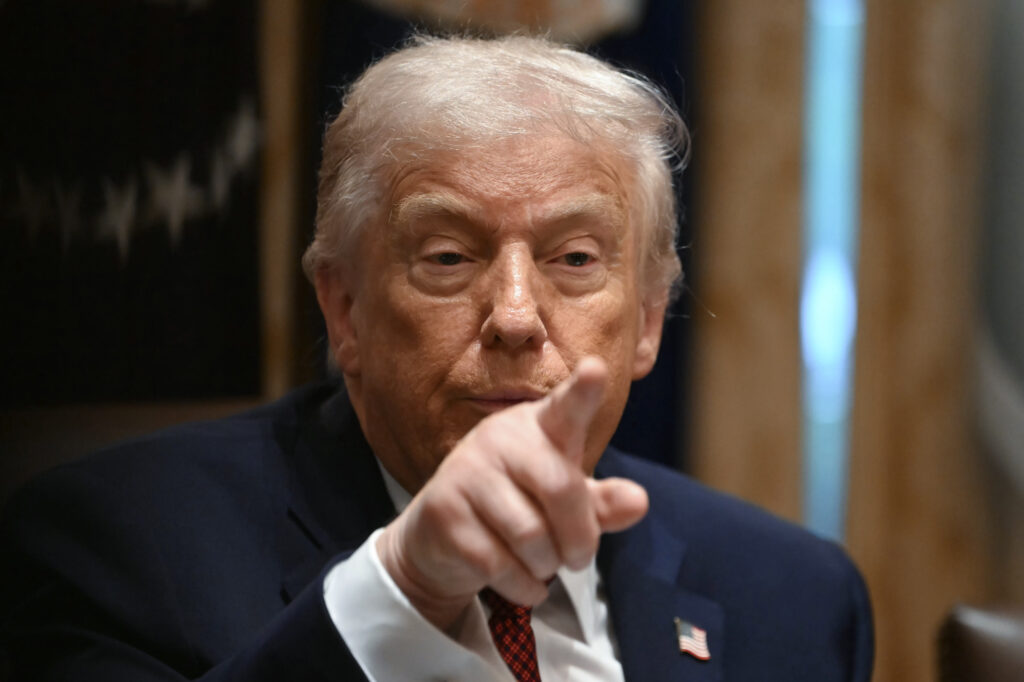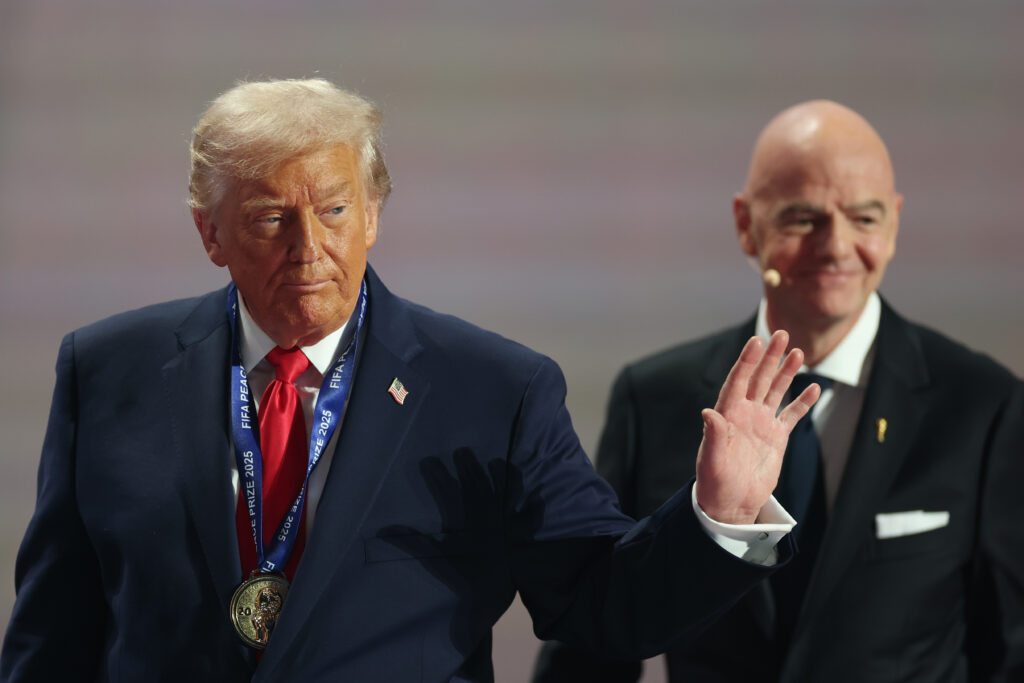AFP USA
US Fed appears set for third rate cut despite sharp divides
The US Federal Reserve is expected to deliver a further interest rate cut Wednesday despite divisions among its ranks, with chief Jerome Powell’s ability to secure support from fellow policymakers put to the test.Financial markets expect a third straight 25 basis points reduction, bringing levels to a range between 3.50 percent and 3.75 percent. This would be the lowest in around three years.But divides within the Fed have grown even as policymakers voted to slash rates twice in recent months to boost the weakening employment market.”We look for at least two dissents in favor of no action and one in favor of a larger cut,” said Michael Feroli, chief US economist at JP Morgan.”There are almost equally compelling reasons to cut and to hold,” he added in a recent note.The Fed’s rate-setting committee consists of 12 voting members — including seven members of the board of governors, the New York Fed president and a rotation of reserve bank presidents — who take a majority vote in deciding the path of rates.Powell noted in October that inflation separate from President Donald Trump’s tariffs is not too far from officials’ two-percent target.But the costs of goods have risen on the back of Trump’s wide-ranging levies this year, and some officials are cautious that higher prices could become persistent.The Fed pursues maximum employment and stable prices as it decides the path of interest rates, although the goals can sometimes be in conflict. Lower rates typically stimulate the economy while higher levels hold back activity and tamp down inflation.- ‘Risk management’ -Powell will likely be able to “persuade several hesitant policymakers to support a third consecutive ‘risk management’ rate cut,” said EY-Parthenon chief economist Gregory Daco.This comes as the most recent available figures confirmed a slowdown in the jobs market, while a government shutdown from October to mid-November delayed the publication of more updated federal data.But Daco also expects Powell to signal “firmly that additional easing is unlikely before next spring,” unless there is material weakening in the world’s biggest economy.This is because rates are close to “neutral,” a level that neither stimulates nor restricts economic activity, analysts believe.Feroli of JP Morgan observed that most Fed governors appear to favor lowering rates, while most reserve bank presidents seem inclined to keeping them unchanged.But New York Fed President John Williams’ remarks that there was room for another cut in the near-term tilts the balance.”We believe he was speaking for the rest of the leadership,” Feroli said, referring to Powell and Vice Chair Philip Jefferson. “This should weigh the votes firmly toward a cut.”Meanwhile Fed Governor Stephen Miran, who is on leave from his role heading the White House Council of Economic Advisers, is expected to push for a larger rate cut.- Litmus test -This week’s gathering is the last before 2026, a year of key changes for the central bank — including the accession of a new chief and tests of its independence as political pressure mounts.In an interview with Politico published Tuesday, Trump signaled that he would judge Powell’s successor on whether they immediately cut interest rates.Asked if this was a “litmus test” for his handpicked candidate, Trump responded “yes.”Powell’s term as Fed chair ends in May 2026, and Trump has hinted that he wants to nominate his chief economic adviser Kevin Hassett to the top post.Hassett currently chairs the White House National Economic Council, and appears to be in lockstep with the president on key economic questions facing the Fed.If appointed, however, Hassett could also face pressure from financial markets to diverge from the White House on interest rates — particularly if inflation worsens.Miran’s term as governor also ends in January, creating an opening among the Fed’s top officials. And Trump has sought to free up another seat in attempting to fire Fed Governor Lisa Cook earlier this year.Cook challenged her ousting, and the Supreme Court barred the president from immediately removing her while awaiting oral arguments on the case in January.
Trump supporters say prices too high, but president has cure
Donald Trump may have dismissed US cost of living issues as a “hoax,” but his most loyal supporters are feeling the pinch — even if they still back the president to fix the problem.Hundreds of people, many bundled up with red “Make America Great Again” beanies, waited in the biting cold Tuesday to see Trump talk up his economic agenda at a casino in rural Pennsylvania.Several told AFP they are worried about high prices but stopped short of blaming the 79-year-old billionaire.”Personally, yes, prices are high right now… but things have to get worse before they get better,” said Brianna Shay, 26, clutching a sign reading “Trump Gives Us Hope.””Unfortunately, the president before really screwed us, really bad,” she said, echoing Trump in blaming his Democratic predecessor Joe Biden for the situation.”I think people are going to be able to afford to live again. But he has been president for just under a year now. You know he can’t fix all that in under a year,” said Shay, a public education administrator.Under pressure from his Republican Party, Trump has softened his message on inflation by acknowledging an affordability “problem,” having dismissed it last week as a “con job.”His appearance at Mount Airy Casino Resort, which was flanked by snowy fields and a partially frozen lake on Tuesday, was part of an effort to boost messaging that he is reducing inflation.Inside the packed conference hall, Trump lapped up the attention of a lively crowd that cheered his claims that US prices are falling “tremendously.”And the president again pinned lingering economic issues on his predecessor, prompting boos from the audience, with one woman shouting “I hate Joe Biden!”But even devoted followers like Tevin Dix — one of the first people queuing to hear Trump’s speech — noted the gravity of the financial situation.”Things are a little difficult, people are struggling,” said Dix, an air conditioning technician. Still, the 30-year-old was confident that Trump’s proposed solutions — including his sweeping levies on US trading partners — would yield results soon. “If the tariffs continue to keep pounding and getting other countries to bring jobs back and put more Americans back to work,” said Dix, who wore a Christmas-style jumper with Trump’s portrait.Many Americans, however, at least partly blame tariffs for worsening the cost of living, according to polls that show Trump’s approval rating at its lowest since his January return to office.Despite recognizing some financial concerns, people at the Pennsylvania rally were keen to praise Trump on other policies, such as his crackdown on migrants. And others simply shrugged off the suggestion of financial hardship. “Just past Black Friday was the biggest sales ever. If everybody’s broke, I don’t know where the money came from,” said Mark Johnson, 70.”All my investments are doing good. I’m happy. You can’t cure everything overnight. It’s gonna take a while,” the retiree added, holding a cutout of Trump wearing a Santa hat.
Honduran leader alleges vote tampering, US interference
Honduran President Xiomara Castro on Tuesday denounced what she called tampering with results in the recent general election, and accused US counterpart Donald Trump of interfering in the vote.The final votes are still being counted after the November 30 presidential election, and suspicions of interference have been fueled by successive computer failures that have stalled tallying.Trump-backed conservative candidate Nasry Asfura, 67, on Monday had 40.53 percent of votes, followed closely by right-wing candidate Salvador Nasralla with 39.16 percent, according to the National Electoral Council (CNE).Nasralla has also complained about alleged electoral corruption and on Monday described the results as “theft,” arguing he was in fact leading by 20 percent.Both are well ahead of the candidate from Castro’s left-wing Libre party, Rixi Moncada.Speaking at a rally in the center of the country, Castro said people had taken part in the election with “courage and determination.”However, she said the process was marked by “threats, coercion, manipulation of the TREP” — the country’s preliminary results system — and “tampering with the popular will.”Castro also claimed Trump had “interfered” in the election by threatening Hondurans that there would be “consequences” if they voted for Moncada.Trump declared his clear support for Asfura in the final stretch of the campaign, declaring him a “friend of freedom” and accusing Nasralla of merely “pretending to be an anti-communist.”Trump also issued a surprise pardon of former Honduran president Juan Orlando Hernandez, who had been serving a 45-year prison sentence in the United States on drug charges of helping traffic hundreds of tons of cocaine.Nasralla is demanding a “vote-by-vote” recount of the tallies which, according to him, show “a pattern of fraud where biometric recognition was not used and the tallies were drafted arbitrarily.”More than a week after the elections, thousands of voting records with “inconsistencies” still need to be reviewed, election officials said.Late Sunday, the Libre party demanded “the total annulment” of the elections and called for protests and strikes, while urging officials not to cooperate with the government transition.- Request to Interpol -The Trump administration said Monday that the election had been fair and that there was “no credible evidence” justifying its annulment.The electoral council has until December 30 to declare a winner, according to Honduran law.Amid the uncertainty over who will succeed Castro, Honduran Attorney General Johel Zelaya requested Tuesday that Interpol execute an arrest warrant against ex-president Hernandez.The warrant was issued in 2023 — when Hernandez was already in US custody — over alleged money laundering and fraud.On Tuesday, Hernandez’s lawyer, Renato Stabile, dismissed the prosecutor’s request, linking it to a “desperate and shameful attempt” by the Honduran left to “remain in power,” according to a statement to AFP in the United States.The former Honduran president, who is from the same party as Trump’s favored candidate Asfura, has ruled out returning to Honduras anyway because he fears for his life, according to his wife Ana Garcia.
Florida carries out state’s 18th execution of the year
A Florida man convicted of murdering a woman during a robbery was put to death by lethal injection on Tuesday, one of two executions scheduled in the United States this week.Mark Geralds, 58, was executed at 6:15 pm (2315 GMT) at the Florida state prison in Raiford after abandoning legal appeals against his death sentence.Geralds was convicted of the 1989 murder of Tressa Pettibone, 33, who was beaten and stabbed to death in her home.Pettibone’s eight-year-old son found her body when he returned home from school.Florida has carried out 18 executions this year, more than any other US state.There have been five each in Alabama and Texas.Tennessee is scheduled to carry out its third execution of the year on Thursday. Harold Nichols, 64, is to be executed by lethal injection at a state prison in Nashville for the rape and murder of Karen Pulley, 20.There have been 45 executions in the United States this year, the most since 2010, when 46 inmates were put to death.Thirty-seven of this year’s executions have been carried out by lethal injection.Three have been by firing squad and five by nitrogen hypoxia, which involves pumping nitrogen gas into a face mask, causing the prisoner to suffocate.The use of nitrogen gas as a method of capital punishment has been denounced by United Nations experts as cruel and inhumane.The death penalty has been abolished in 23 of the 50 US states, while three others — California, Oregon and Pennsylvania — have moratoriums in place.President Donald Trump is a proponent of capital punishment and, on his first day in office, called for an expansion of its use “for the vilest crimes.”
US Supreme Court weighs campaign finance case
The US Supreme Court heard arguments on Tuesday in a Republican challenge to campaign finance rules that could impact next year’s midterm elections.Among those bringing the case is Vice President JD Vance, who joined when he was running for the Senate in 2022 and is now considered a potential candidate for the Republican presidential nomination in 2028.At issue in the case brought by the Republican Party is limits on the amount of money political parties can spend in coordination with their candidates.In Citizens United, a landmark 2010 case, the Supreme Court lifted restrictions on campaign spending by corporations, unions and other outside groups.But political parties are still restricted, however, on how much they can spend on advertising, for example, in coordination with individual candidates.Supporters of the law argue that it curbs potential corruption and prevents wealthy donors from funneling money through a political party to a candidate of their choice.It was unclear during oral arguments on Tuesday how the court would rule although several of the six conservative justices on the nine-member court appeared inclined to strike down the restrictions.”I am concerned…that the combination of campaign finance laws and this court’s decisions over the years have together reduced the power of political parties as compared to outside groups, with negative effects on our constitutional democracy,” said Justice Brett Kavanaugh, a conservative.”You can give huge money to the outside group, but you can’t give huge money to the parties, and the parties are very much weakened compared to the outside group,” Kavanaugh said.The three liberal justices were skeptical.”Once we take off this coordinated expenditure limits, then what’s left?” said Justice Sonia Sotomayor. “What’s left is nothing, no control whatsoever.”Marc Elias, arguing for Democrats who oppose easing the rules, said lifting the spending restrictions would “convert the political parties into mere paymasters to settle invoices from campaign vendors.””They will not be able to support activity that is long term in nature, because there will be an arms race that right now doesn’t exist,” Elias said.”Coordinated party spending limits act as a buffer on how much money you can pump into directly paying the bills of a House or Senate campaign or a presidential campaign so that you have funds to do these other party building functions,” he added.The court is expected to issue its decision by the end of June, four months ahead of the midterm vote.
Zelensky says ready to hold Ukraine elections, with US help
President Volodymyr Zelensky said on Tuesday he was ready to hold new elections in Ukraine provided security could be assured, and that he expected to send Washington within a day revised proposals on ending the nearly four-year war with Russia.US President Donald Trump is pressuring Kyiv to accept a deal formulated by Washington, the initial version of which was criticised by Ukraine’s allies as overly favourable to Russia.”We are working today (Tuesday) and will continue tomorrow (Wednesday). I think we will hand it over tomorrow,” Zelensky told reporters after shuttling between European capitals to hammer out a response with allies.Trump, who earlier accused Zelensky of not reading the latest US proposals, said Russia had the “upper hand” in the conflict, in an interview with Politico published on Tuesday.He also accused Kyiv of “using war” to avoid elections, which have been postponed under the imposition of martial law since Russia invaded its neighbour.”You know, they talk about a democracy, but it gets to a point where it’s not a democracy anymore,” Trump said.Ukrainian law prohibits holding elections under martial law, without which a presidential ballot was to have taken place in March 2024.But on Tuesday, following Trump’s comments, Zelensky said he was ready to organise a new ballot.”I am ready for the elections,” Zelensky told journalists, adding that he was asking Ukrainian lawmakers to prepare “proposals regarding the possibility of amending the legislative foundations and the law on elections during martial law”.He said that, for the vote to take place, security had to be assured in the country whose cities come under Russian drone and missile attacks on a daily basis.”I am now asking, I declare this openly, for the United States of America to help me, possibly together with European colleagues, to ensure security for holding elections,” he said.- ‘No legal right’ -Zelensky spent the past few days shuttling between European capitals to hammer out a response to the US plan. On Monday he held talks with European leaders in London and Brussels. On Tuesday, he went to Italy to meet Pope Leo XIV and Italian Prime Minister Giorgia Meloni.Washington’s proposals involved Ukraine surrendering land that Russia has not captured — the entire industrial Donbas region — in return for security promises that fall short of Kyiv’s aspirations to join NATO.Zelensky on Monday said Washington’s 28-point plan had been revised to 20 points after US-Ukraine talks at the weekend.He said the land issue and international security guarantees were two of the main sticking points.”Do we envision ceding territories? We have no legal right to do so, under Ukrainian law, our constitution and international law. And we don’t have any moral right either,” Zelensky said.”The key is to know what our partners will be ready to do in the event of new aggression by Russia. At the moment, we have not received any answer to this question,” he said.During a televised event on Tuesday, President Vladimir Putin called Ukraine’s eastern Donbas region Russia’s “historical territory”.”This territory is important; it is our historical territory, absolutely,” he said.- Trump criticises Europe -Trump has blown hot and cold on Ukraine since returning to office in January, initially chastising Zelensky for not being grateful for US support.But he was also frustrated that efforts to persuade Putin to end the war had failed to produce results, and he recently slapped new sanctions on Russian oil firms.European allies have expressed solidarity with Ukraine.In the Politico interview, Trump criticised Europe’s role, saying: “They talk but they don’t produce.”Pope Leo XIV said after meeting Zelensky that “The remarks that are made about Europe also in interviews recently, I think, are trying to break apart what I think needs to be a very important alliance today and in the future.”The US pope also warned that “seeking a peace agreement without including Europe in the discussions, let’s say, is unrealistic.””The war is in Europe, and I think that Europe must be part of the guarantees we are seeking for security today and in the future. Unfortunately, not everyone understands this,” he said.
Trump slams ‘decaying’ and ‘weak’ Europe
President Donald Trump blasted Europe as “decaying” and “weak” on immigration and Ukraine in an interview published Tuesday, deepening a rift between the United States and some of its oldest allies.Speaking to Politico, Trump also called on war-battered Ukraine’s President Volodymyr Zelensky to hold elections despite Russia’s invasion and said that Moscow had the “upper hand.”Trump’s comments doubled down on extraordinary criticism of top US partners in his administration’s new national security strategy last week, which recycled far-right tropes about civilizational “erasure” in Europe.”Most European nations, they’re decaying,” Trump told Politico in the interview, conducted Monday.The 79-year-old billionaire, whose political rise to power was built on inflammatory language about migrants, said that Europe’s policies on migrants were a “disaster.””They want to be politically correct, and it makes them weak. That’s what makes them weak,” Trump said, adding that there were “some real stupid ones” among Europe’s leaders.Trump also criticized European nations over Ukraine, amid growing differences over a US plan to end the war that many in Europe fear will force Kyiv to hand over territory to Russia, which launched a full-scale invasion of the country in 2022.”NATO calls me daddy,” Trump said, referring to comments by the military alliance’s leader Mark Rutte at a summit in June when leaders backed Trump’s call to raise defense spending.But he added: “They talk but they don’t produce. And the war just keeps going on and on.”European leaders have been trying to woo Trump since his return to office in January, especially on maintaining US support for Ukraine against Russia.Trump’s interview will intensify the alarm in European capitals sparked by the US security strategy last week, with its calls for “cultivating resistance” in Europe on migration and warnings of so-called “civilizational erasure.”Experts have said parts of it echo elements of the “great replacement theory” promoted by the far-right — and Trump’s former ally Elon Musk — which alleges a conspiracy to replace white populations.- ‘Not a democracy anymore’ -In contrast to the savaging of close US allies, Russia and China got off relatively lightly in the US strategy. The Kremlin said the US document aligned with its own worldview.A French minister, Alice Rufo, said Tuesday that the US security strategy was an “extremely brutal clarification of the ideological stance of the United States.”In his Politico interview, Trump said countries including Britain, France, Germany, Poland and Sweden were being “destroyed” by migration.He also launched a new attack on “horrible, vicious, disgusting” Sadiq Khan, London’s first Muslim mayor. Khan told Politico that Trump was “obsessed” with him and said US citizens were “flocking” to live in London.Trump also had sharp words for Ukraine and for Zelensky, in his latest seesaw in relations with the leader whom he called a “dictator without elections” in January and then berated in the Oval Office in February.”I think it’s an important time to hold an election. They’re using war not to hold an election.” Trump said. “It gets to a point where it’s not a democracy anymore.”Elections in Ukraine were due in March 2024 but have been postponed under the imposition of martial law since the Russian invasion of Ukraine in February 2022. About 20 percent of the country is under occupation.Fresh elections were included in the draft US plan to end the war. He also reiterated claims about Zelensky having not read the US plan. “It would be nice if he would read it. You know, a lot of people are dying,” Trump said.Top US negotiators met Putin in Moscow last week, then held days of negotiations with Ukrainian officials, but there has been no apparent breakthrough.Zelensky said on Tuesday in response to Trump’s comments that he was “ready for the elections” if security was ensured.He said he hoped to send Ukraine’s updated version of the US plan on Wednesday.
Zelensky says ready to hold Ukraine elections
President Volodymyr Zelensky said on Tuesday he was ready to hold new elections in Ukraine, and that he expected to send Washington within a day revised proposals on ending the nearly four-year war with Russia.US President Donald Trump is pressuring Kyiv to accept a deal formulated by Washington, the initial version of which was criticised by Ukraine’s allies as overly favourable to Russia.”We are working today (Tuesday) and will continue tomorrow (Wednesday). I think we will hand it over tomorrow,” Zelensky told reporters after shuttling between European capitals to hammer out a response with allies.Trump, who earlier accused Zelensky of not reading the latest US proposals, said Russia had the “upper hand” in the conflict, in an interview with Politico published on Tuesday.He also accused Kyiv of “using war” to avoid elections, which have been postponed under the imposition of martial law since Russia invaded its neighbour.”You know, they talk about a democracy, but it gets to a point where it’s not a democracy anymore,” Trump said.Ukrainian law prohibits holding elections under martial law, without which a presidential ballot was to have taken place in March 2024.But on Tuesday, following Trump’s comments, Zelensky said he was ready to organise a new ballot.”I am ready for the elections,” Zelensky told journalists, adding that he is asking Ukrainian lawmakers to prepare “proposals regarding the possibility of amending the legislative foundations and the law on elections during martial law”.- ‘No legal right’ -Zelensky spent the past few days shuttling between European capitals to hammer out a response to the US plan. On Monday he held talks with European leaders in London and Brussels. On Tuesday, he went to Italy to meet Pope Leo XIV and Italian Prime Minister Giorgia Meloni.Washington’s proposals involved Ukraine surrendering land that Russia has not captured — the entire industrial Donbas region — in return for security promises that fall short of Kyiv’s aspirations to join NATO.Zelensky on Monday said Washington’s 28-point plan had been revised to 20 points after US-Ukraine talks at the weekend.He said the land issue and international security guarantees were two of the main sticking points.”Do we envision ceding territories? We have no legal right to do so, under Ukrainian law, our constitution and international law. And we don’t have any moral right either,” Zelensky said.”The key is to know what our partners will be ready to do in the event of new aggression by Russia. At the moment, we have not received any answer to this question,” he said.During a televised event on Tuesday, President Vladimir Putin called Ukraine’s eastern Donbas region Russia’s “historical territory”.”This territory is important; it is our historical territory, absolutely,” he said.- Trump criticises Europe -Trump has blown hot and cold on Ukraine since returning to office in January, initially chastising Zelensky for not being grateful for US support.But he was also frustrated that efforts to persuade Putin to end the war had failed to produce results, and he recently slapped new sanctions on Russian oil firms.European allies have expressed solidarity with Ukraine.In the Politico interview, Trump criticised Europe’s role, saying: “They talk but they don’t produce.”Meloni, who positions herself as a bridge between Trump and Europe, has been a staunch supporter of Ukraine since Russia’s invasion, although one of her coalition allies, Matteo Salvini’s League party, is more sceptical of aid for Kyiv.Italy has sent weapons to Ukraine, but only for targets inside the country. Meloni has also ruled out sending troops in a possible monitoring force proposed by Britain and France.The Italian government last week postponed a decision on renewing military aid to Ukraine, with the current authorisation due to end on December 31. Salvini has reportedly questioned whether it is necessary in light of current talks.However, Meloni at the time insisted that “as long as there’s a war, we’ll do what we can, as we’ve always done to help Ukraine defend itself”.
Trump’s FIFA peace prize breached neutrality, claims rights group
Human rights group FairSquare has filed a complaint to FIFA’s ethics committee claiming the world football body’s president Gianni Infantino breached his duty of neutrality by supporting US President Donald Trump.Infantino awarded Trump FIFA’s inaugural peace prize during the December 6 draw for the 2026 World Cup to be played in the United States, Canada and Mexico in June and July. FairSquare also called FIFA’s governance structure “absurd”, and claimed the organisation’s behaviour was against the common interests of the global football community, in a complaint filed on Monday.”This complaint is about a lot more than Infantino’s support for President Donald Trump’s political agenda,” FairSquare’s programme director Nicholas McGeehan said. “More broadly this is about how FIFA’s absurd governance structure has allowed Gianni Infantino to openly flout the organisation’s rules and act in ways that are both dangerous and directly contrary to the interests of the world’s most popular sport.”FairSquare’s complaint said awarding the peace prize to a “sitting political figure is in and of itself a clear breach” of article 15 of FIFA’s own code of ethics. They also requested the ethics committee investigate Infantino’s part in the “processes that led to the creation of the FIFA Peace Prize”, and the decision to award it to Trump. Furthermore, the NGO highlighted Infantino’s plea in October for Trump to be awarded the Nobel Peace Prize, and said the Swiss made statements on three other occasions favourable to Trump’s political agenda.Contacted by AFP, FIFA confirmed they had received the complaint but made no further comment.

